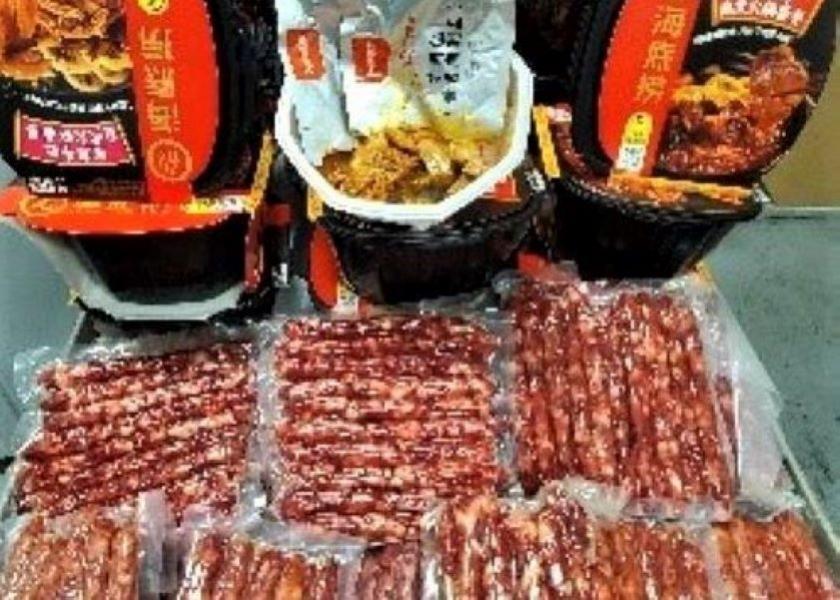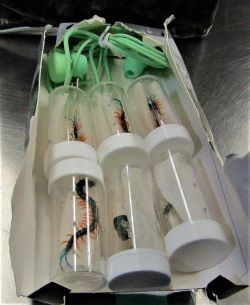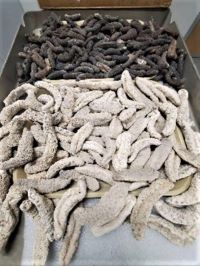Foreign Live Centipedes, Dried Sea Cucumbers, Plants, Sausages: It's Contraband, CBP Says

A box declared as "earphones" arrived from Malaysia on May 4. But when U.S. Customs and Border Protection (CBP) agriculture specialists opened it up, they discovered 26 vials containing live centipedes concealed in earphone cases.

Photo by US CBP.
Just a week before, a shipment arriving from Hong Kong was declared as "dried food," but agents discovered 28.6 pounds of dried sea cucumbers.

Photo by US CBP.
Then, on May 3, CBP agriculture specialists stopped 15 unknown live propagative plants with soil from China that were declared "plastic flowers." Two days later, they discovered more than 55 pounds of noodles with ruminant ingredient and swine sausage products manifested as “packaging box.”
Although their contents differed, US CBP said they all had one important thing in common: they lacked the required official permits or certificates.
"These violations are a less-known form of contraband arriving every day from overseas in ocean containers and postal and express air mail to destinations all over the United States," CBP reports.
In 2020, the Los Angeles Field Office issued 2,695 Emergency Action Notifications (EAN) compared with 4,665 in 2021, a 73% increase from the previous year.
When unmanifiested/prohibited animal products are intercepted, CBP issues an EAN to initiate the destruction or re-exportation of the contraband, CBP explains.
“The illegal importation of plants and animal products could introduce foreign pests and diseases threatening the United States vital agriculture industry,” Carlos C. Martel, CBP Director of Field Operations in Los Angeles said in a release. “These unprecedented numbers reflect the critical role of CBP’s agriculture specialists in identifying and intercepting these shipments.”
The live centipedes and the dried sea cucumbers shipments were referred to U.S. Fish and Wildlife Service (FWS) for investigation and final determination. The FWS requires a license to trade in wildlife and possibly additional permits if the species is protected, the release said.
Meanwhile the propagative plants, ruminant noodles and swine sausages were destroyed under USDA and CBP supervision using steam sterilization.
“Unregulated animal products from overseas are in high demand and smugglers attempt to smuggle those products into the United States for profit without regard to consumer safety or potential damage to the agriculture industry,” Martel said in a release.
It's important to help educate consumers of importation restrictions, especially in light of increasing foreign animal disease pressures.
Pork products from African swine fever (ASF) affected countries threaten to introduce the virus to the U.S., for example, which would "cripple the domestic pork industry" and U.S. pork exports valued at $6.5 billion annually. ASF is not harmful to humans and poses no food safety risk, but it is deadly to swine.
More from Farm Journal's PORK:







